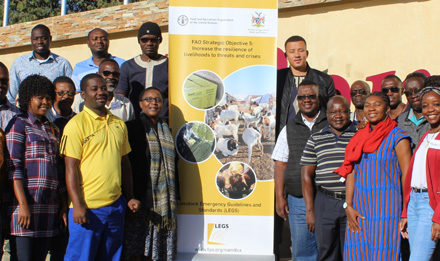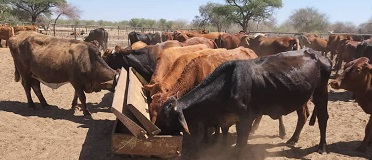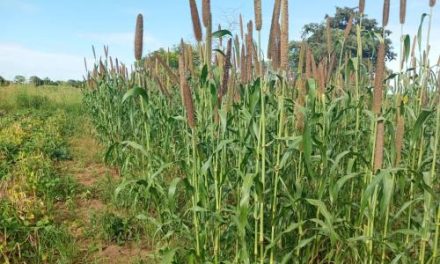
Conservation Agriculture takes centre stage

Minister of Agriculture Water and Forestry Honorable John Mutorwa.(Photograph by Amerie Bennett).
The current food security situation in Namibia serves as a reminder that Conservation Agriculture is an essential crop production system base for enhancing the production of crops and livestock, livelihoods and the quality of life of farmers across Namibia.
“The agriculture sector in Namibia ideally needs to grow or is expected to grow by 4% a year, to meet the food requirements for the country’s growing population. However, the expansion of cultivated areas to compensate for low yields, the exploitation of low nutrients status soils, without restoration of soil fertility, changing climate patterns, including low, unpredictable and erratic rainfalls, and lack of well-adopted technologies,have been long identified, as some of the major challenges of soil fertility management in Namibia,” said Minister of Agriculture Water and Forestry, Honorable John Mutorwa. The programme aims to increase awareness and knowledge of Conservation Agriculture among stakeholders, including farmers, extension workers, researchers and policy as well as decision makers; increase farmers’ and extension worker’s skills of practising Conservation Agriculture; to ensure that farmers have sustained access to Conservation Agriculture equipment, inputs, markets and services, additionally to develop standards, then monitor and evaluate adoption and impact of the programme.
Other aims of the programme include the establishment of institutional arrangements for harmonized and coordinated implementation of the programme. Mutorwa said the programme will target all crop producers in Namibia and encourage them to adopt Conservation Agriculture practices depending on the resources allocated to them. “The programme also aims at providing government assistance in a form of a subsidy to communal crop and livestock producers concentrated in the Northern Communal Areas as well as Hardap, Erongo, and //Karas regions where applicable.”
Other beneficiaries of the programme include commercially rain-fed farmers, including resettlement farmers, affirmative action farmers and irrigation farmers in the maize triangle and other parts of the country, farmers from the government Green Scheme Irrigation projects (commercial irrigation schemes with some rain-fed cropping, large scale service providers and associated medium scale emerging farmers), farming along perennial rivers in the extreme Northwest, north-east and south of the country and near the country’s dams. The government through the MAWF has allocated N$94. 4 million which will be used over a period of 5 years with commitments from the MAWF as well as other reliable stakeholders, such as the Food Organisation (FAO), the European Union and the German government.












































